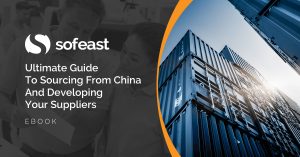Finbarr Bermingham and Cissy Zhou wrote an interesting article in the South China Morning Post, entitled Bribes, fake factories and forged documents: the buccaneering consultants pervading China’s factory audits. An interesting Linkedin discussion ensued.
There is so much evidence of wrongdoing, nobody can deny social compliance audit reports are highly unreliable. As I wrote nearly 10 years ago, Social compliance audits don’t work!
Worse yet, they push the factory to work with consultants who teach the factories how to cheat. I also wrote about this before in Social compliance audits in factories: perverse effects.
And the irony is: brands and retailers keep requesting many audits, and the auditing firms’ argument is “do more audits if you want to know the truth, otherwise it is not easy to uncover”. Let’s get serious…
What has changed over the past 10 years?
Not very much on this topic, unfortunately.
a) The conditions of workers in China has undoubtedly improved. However, should we thank social audits? I don’t think so. It is simply the result of market forces (a lot of demand for workers, in front of a dwindling supply). As an exporter said recently, “It’s hard to be a manager nowadays. We are at the workers’ mercy.”
b) Platforms such as BSCI, Sedex, WRAP, ICTI, and others have taken a lot of importance. And that’s good if it means fewer audits and less complexity to manage.
However, in my mind, those platforms should look at the different sides of the table, if they are to truly improve the workers’ conditions:
- Manufacturers, of course. No child labor, no forced labor, no unsafe working conditions, and so on.
- Buyers, too. They should always check if their demand matches the factories’ capacity (and that might require levelling their demand over longer periods of time); they should always give adequate lead times for production; they should make efforts to make it possible to work for more than 5 years with the same supplier; and so on.
- Employees, too have a word to say. If they overwhelmingly say they don’t mind working longer hours, why should non-government auditors get involved in that topic? Is it all just for brands and retailers to “cover their asses” and avoid PR disasters?
c) Importers haven’t started to behave better. They bear great responsibility for what happens in their supply chains. Some of them are in a position of strength and are regularly accused of exploiting their suppliers.
What happens when a customer has a lot of inventory and makes excuses to cancel an order? It can kill small factories. Many employees may be left with unpaid salaries.
If you really want to send in auditors and uncover the situation in your supply chain…
Should this type of work be given to companies that, historically, were doing mostly management system audits (ISO 9001, ISO 14001…)?
They are used to following the ISO 19011 standard (about the way to conduct such audits), and that standard clearly says auditors should not look for issues but rather help the auditee show they are compliant. I’d agree that audits are not crime investigations, but I’d also suggest that approach is a bit too lenient for situations where everybody knows there is a LOT of deception.
What is missing in social compliance audits?
Preventing bribery will be always very hard if a good report means a lot of business for the factory. But certain things would undoubtedly help. Here are two examples:
- Truly unannounced audits. At the same time, confirm production is not subcontracted.
- Helping honest auditors who feel something is probably wrong (e.g. missing records about working hours, or records that look too well-kept to be real) record their impression, which would trigger unannounced followup with particular emphasis on that same area.
And will we see that come up? Probably not.
*****
The real question is, do big brands and retailers want the issues to be known, and do they want to make efforts to improve the situation?
My general feeling is that, with a few exceptions, they do not.
Ultimate Guide To Sourcing From China And Developing Your Suppliers [eBook]
This FREE eBook starts from the beginning, discussing whether you need to hire a sourcing agent, and follows the sourcing process right through to developing a trusted supplier’s quality and productivity.
There are 15 chapters over 80+ pages to explore, providing exhaustive guidance on the entire sourcing and supplier development process from start to finish, including:
- Identifying suppliers,
- Negotiations,
- Quality inspections,
- Developing Chinese suppliers,
- Improving factory quality and productivity,
- and much more…



Very insightful write up. Regarding this issue, I’d say it is very much a societal problem wherever you go. What I am about to say is very much a cliche, so as we all seen the elephant already, what else am I selling here?
I’m not a practitioner myself. Still, I would like to tell you fellas comes outside of China, you need to learn to be like a snake. That’s it from me.